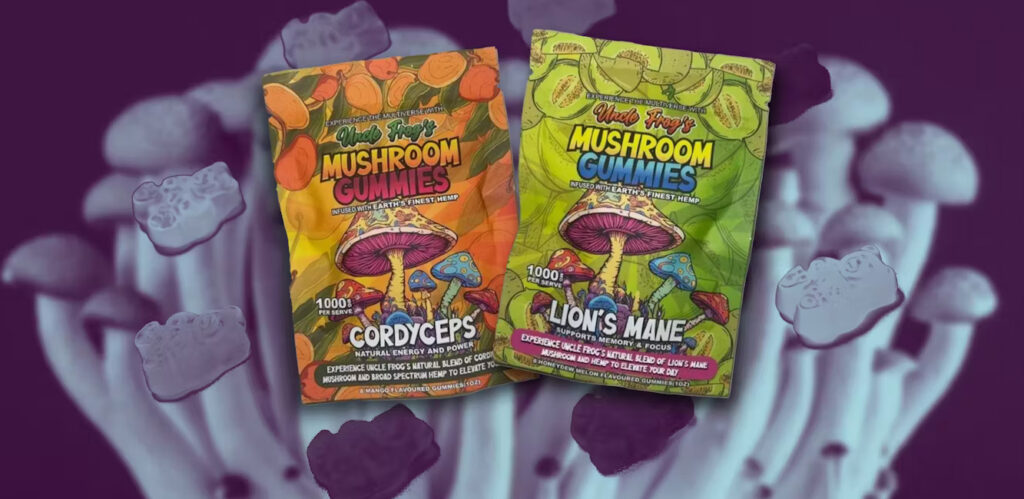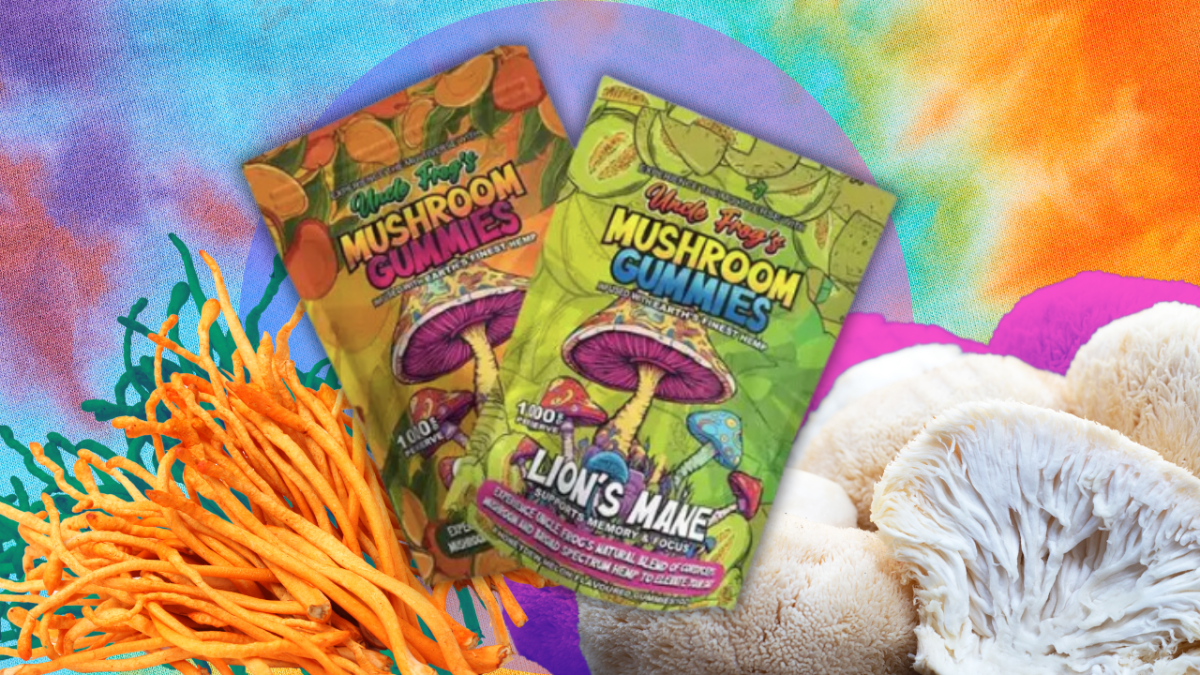Blog
Common Risks Associated With Microdosing Mushroom Gummies
While many users report positive outcomes with microdosing, it’s important to understand the potential risks involved with this practice. From dosage uncertainties to legal considerations and possible psychological impacts, microdosing is not without its challenges.
In this article, we’ll explore the common risks associated with microdosing magic mushroom gummies, helping you make informed decisions and prioritize safety on your journey.
What is microdosing?
Microdosing refers to the practice of consuming small, sub-perceptual amounts of a psychedelic substance, such as magic mushroom gummies, to enhance mental clarity, creativity, and emotional well-being without experiencing the intense hallucinations or altered states commonly associated with larger doses.
Over recent years, microdosing has gained significant popularity, especially among professionals, creatives, and wellness enthusiasts seeking alternative ways to boost productivity, reduce anxiety, and improve mood.
The appeal lies in its promise of subtle yet meaningful benefits that can be integrated seamlessly into daily life.
However, despite its rising trend, it’s important to approach microdosing with a clear understanding of the potential advantages and the risks involved, as the practice remains largely unregulated and understudied in clinical settings.
Dosage Challenges and Risks of Overconsumption
One of the most significant challenges when it comes to microdosing magic mushroom gummies is accurately managing the dosage.
Unlike traditional forms of mushrooms, gummies often come pre-packaged with specific amounts of psilocybin, but inconsistencies in manufacturing or variations in individual tolerance can make it difficult to gauge the perfect microdose.
Overconsumption is a common risk, as taking too large a dose can lead to unintended psychoactive effects such as heightened anxiety, paranoia, or sensory overload, which can be overwhelming rather than beneficial.
Additionally, because gummies are edible and often sweet, it’s easy to underestimate their potency and consume more than intended.
Without precise measurement and a cautious approach, users may experience adverse reactions that not only disrupt their daily activities but also increase the risk of psychological distress.
Therefore, it’s essential to start with the lowest possible dose, wait to assess how your body and mind respond, and avoid combining microdosing with other substances that might amplify effects.
Understanding these dosage challenges is crucial to safely exploring the potential benefits of mushroom gummies while minimizing the risks associated with overconsumption.
Potential Psychological and Emotional Effects
When considering microdosing magic mushroom gummies, it’s important to be aware of the potential psychological and emotional effects that may arise.
While many users report enhanced mood, increased creativity, and reduced anxiety, these experiences are not universal. Some individuals might encounter heightened feelings of nausea, anxiety, paranoia, or emotional instability, especially if they have a history of mental health conditions or are prone to mood disorders.
Additionally, microdosing can sometimes lead to subtle shifts in perception or thought patterns that may feel unsettling or disorienting. It’s also possible to experience emotional amplification, where existing feelings—whether positive or negative—become more intense.
Being mindful of these potential effects and starting with very low doses in a safe, controlled environment can help mitigate risks. Consulting with a healthcare professional before beginning any microdosing regimen is also highly recommended to ensure it aligns with your health profile.
Legal Considerations and Safety Precautions
When exploring the world of microdosing magic mushroom gummies, it’s crucial to be aware of the legal landscape and prioritize safety. The legal status of psilocybin, the active compound in magic mushrooms, varies widely depending on your location.
In many countries and states, psilocybin remains classified as a controlled substance, making possession, sale, or use illegal and potentially subject to severe penalties. Before considering microdosing, it’s essential to thoroughly research the laws in your area to avoid legal complications.
Beyond legal considerations, safety precautions play a vital role in ensuring a positive and responsible microdosing experience. Because magic mushroom gummies contain psychoactive substances, it’s important to source them from reliable suppliers or their official website to avoid contamination or inconsistent dosing.
Start with small amounts to assess your body’s reaction, and never mix microdosing with other substances such as alcohol or prescription medications without consulting a healthcare professional.
Additionally, individuals with a history of mental health conditions should exercise extra caution, as psilocybin can sometimes exacerbate symptoms.
By understanding both the legal framework and prioritizing safety, you can make informed decisions and reduce potential risks associated with microdosing magic mushroom gummies.
Interactions with Medications and Health Conditions
It is crucial to be aware of potential interactions with medications and existing health conditions when considering microdosing magic mushroom gummies. Psilocybin, the active compound in magic mushrooms, can influence brain chemistry and physiological processes, which may interfere with certain prescription drugs.
For instance, combining psilocybin with antidepressants, particularly selective serotonin reuptake inhibitors (SSRIs), can alter the effectiveness of either substance and may increase the risk of serotonin syndrome—a potentially life-threatening condition caused by excessive serotonin levels.
Additionally, individuals with a history of mental health disorders such as schizophrenia, bipolar disorder, or severe anxiety should exercise extreme caution, as microdosing could exacerbate symptoms or trigger adverse psychological reactions.
It’s always advisable to consult a healthcare professional before starting microdosing, especially if you’re taking medications or managing chronic health issues, to ensure your safety and well-being throughout the experience.
Tips for Responsible and Informed Microdosing
- Start with a low dose—typically between 0.1 and 0.3 grams of dried mushroom equivalent—and pay close attention to how your body and mind respond.
- Keep a detailed journal to track dosage, timing, and any changes in mood or cognition, which can help you fine-tune your routine and recognize any adverse effects early on.
- It’s also important to source your gummies from reputable suppliers or their official website, which provides clear information about potency and ingredients to avoid unexpected reactions. Our recommended best options are the Road Trip’s microdosed blend mushroom gummies and Wunder’s microdosed mushroom gummies.
- Avoid mixing microdosing with alcohol, prescription medications, or other substances without consulting a healthcare professional, as interactions can pose serious health risks.
- Lastly, give yourself regular breaks, such as taking a few days off each week, to prevent tolerance buildup and maintain the effectiveness of the microdose.
By staying informed, respecting your body’s signals, and practicing moderation, you can navigate microdosing in a way that prioritizes your well-being and minimizes potential risks.
Related Article
The Best Mushrooms Gummy Brands To Buy 2025







Pingback: The Best Ways to Microdose with Magic Mushroom Gummies - Road Trip